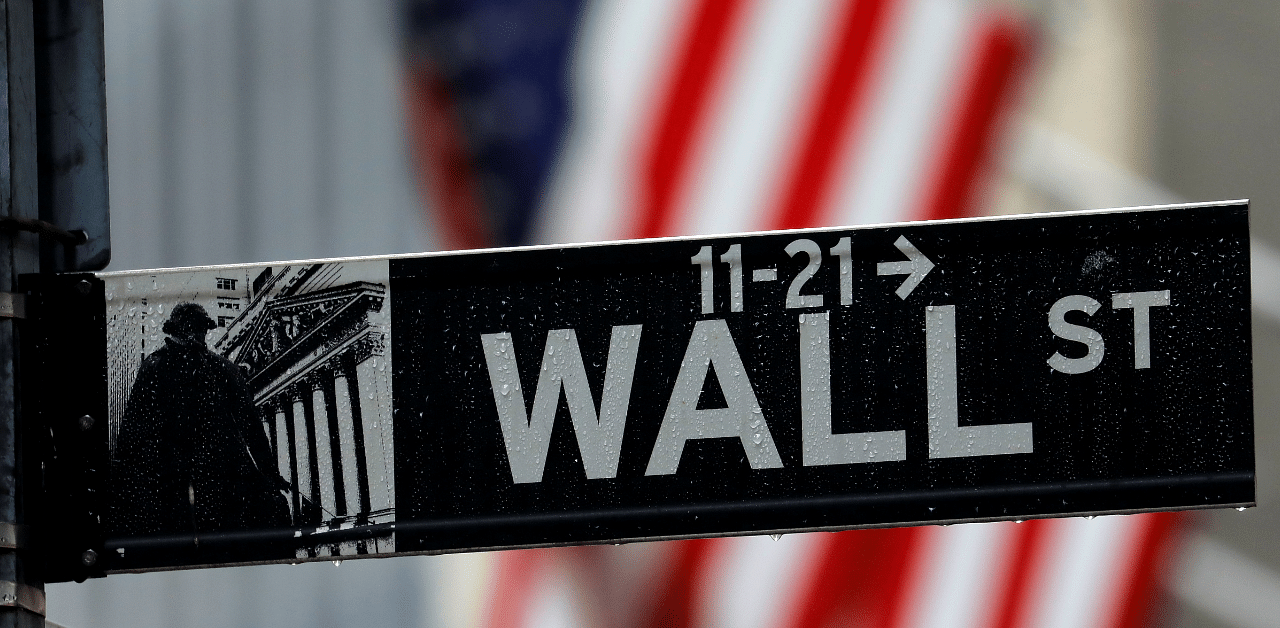
World stock markets mostly fell Wednesday before a US Federal Reserve interest rate decision, while oil prices fell further on stubborn fears about weakening demand due to fallout from the Omicron coronavirus variant.
On Wall Street, all three major indices were lower in late morning trading, also reacting to weak November retail sales data.
In Europe, London's benchmark FTSE 100 slid 0.7 per cent after news that UK inflation hit 5.1 per cent in November -- its highest level for more than a decade -- briefly sending the pound climbing in anticipation of a possible interest rate rise by the Bank of England at its Thursday meeting.
The Paris CAC 40 index rose 0.5 per cent and Frankfurt's DAX added 0.2 per cent on the eve of a meeting of the European Central Bank where policymakers are not expected to hike rates.
Pressure is mounting on major central banks to get a grip on runaway inflation, sent soaring this year by a spike in energy prices, long-running supply chain snags and surging demand.
Asian equities mostly fell as investors nervously awaited the Fed, which is expected to announce a speedier withdrawal of its massive financial support just as Omicron fans economic recovery concerns.
The BoE is however forecast to hold its record-low interest rate, despite rampant inflation, as policymakers continue to fret over Omicron.
"With UK CPI inflation reaching a 10-year high, the Bank of England will be under pressure to lay out their plans -- even if they do hold off on raising rates tomorrow," said IG analyst Joshua Mahony.
"Caught between constantly rising inflation and the prospect of a dramatic explosion in Omicron cases, the UK economic picture looks more unstable than ever," he added.
Data last week showed US consumer prices rose in November at their fastest pace in four decades, all but confirming that the Fed will aim to end its vast bond-buying programme sooner than expected, allowing it to begin lifting interest rates by mid-2022.
The prospect of the end of central bank largesse -- put in place at the start of the pandemic -- has been a huge drag on global equity markets for the past few months, bringing an end to a rally that saw many markets hit record or multi-year highs.
"Today sees the Fed grab the headlines, with traders widely expecting to see (Chairman Jerome) Powell ramp up the tapering process in response to elevated and persistent inflation pressures," added Mahony.
Fawad Razaqzada at ThinkMarkets said the Fed "simply cannot justify not tapering QE with consumer inflation at its highest since the early 80s, producer prices racing to an all-time high, GDP already above pre-pandemic levels and the labour market being tight."
Data released early on Wednesday showed that US retail sales, excluding gasoline, rose just 0.1 per cent, as consumers reacted to rising prices.
Adding to the downbeat mood is the surge in infections caused by the Omicron coronavirus variant, which has forced governments around the world to reintroduce fresh containment measures, threatening to deal a blow to the already fragile economic rebound.
Check out DH's latest videos